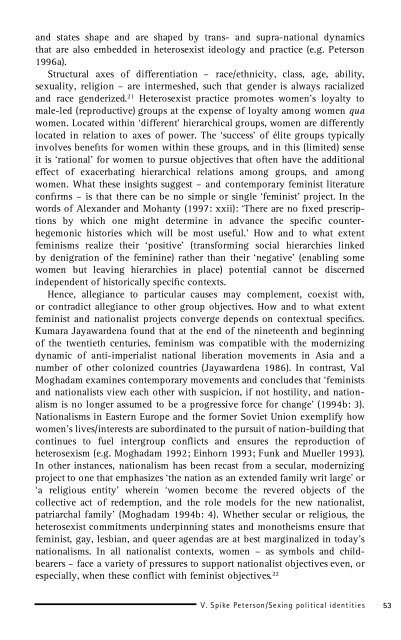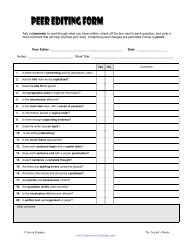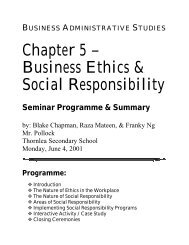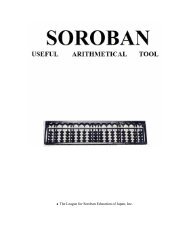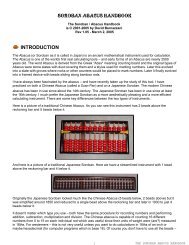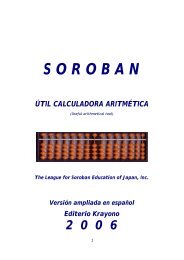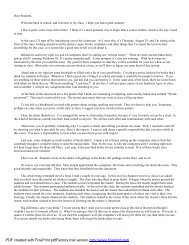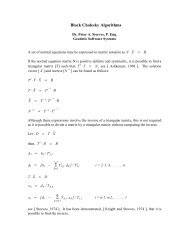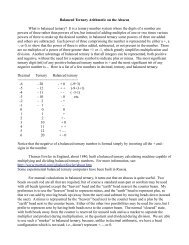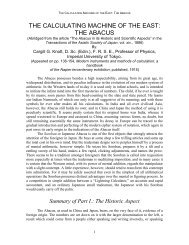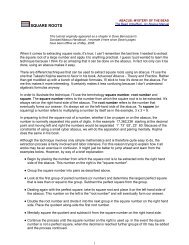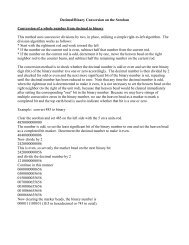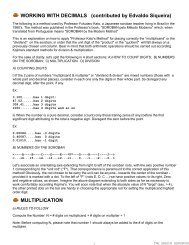Sexing Political Identities-Nationalism as Heterosexism.pdf
Sexing Political Identities-Nationalism as Heterosexism.pdf
Sexing Political Identities-Nationalism as Heterosexism.pdf
Create successful ePaper yourself
Turn your PDF publications into a flip-book with our unique Google optimized e-Paper software.
and states shape and are shaped by trans- and supra-national dynamics<br />
that are also embedded in heterosexist ideology and practice (e.g. Peterson<br />
1996a).<br />
Structural axes of differentiation – race/ethnicity, cl<strong>as</strong>s, age, ability,<br />
sexuality, religion – are intermeshed, such that gender is always racialized<br />
and race genderized. 21 Heterosexist practice promotes women’s loyalty to<br />
male-led (reproductive) groups at the expense of loyalty among women qua<br />
women. Located within ‘different’ hierarchical groups, women are differently<br />
located in relation to axes of power. The ‘success’ of élite groups typically<br />
involves benets for women within these groups, and in this (limited) sense<br />
it is ‘rational’ for women to pursue objectives that often have the additional<br />
effect of exacerbating hierarchical relations among groups, and among<br />
women. What these insights suggest – and contemporary feminist literature<br />
conrms – is that there can be no simple or single ‘feminist’ project. In the<br />
words of Alexander and Mohanty (1997: xxii): ‘There are no xed prescriptions<br />
by which one might determine in advance the specic counterhegemonic<br />
histories which will be most useful.’ How and to what extent<br />
feminisms realize their ‘positive’ (transforming social hierarchies linked<br />
by denigration of the feminine) rather than their ‘negative’ (enabling some<br />
women but leaving hierarchies in place) potential cannot be discerned<br />
independent of historically specic contexts.<br />
Hence, allegiance to particular causes may complement, coexist with,<br />
or contradict allegiance to other group objectives. How and to what extent<br />
feminist and nationalist projects converge depends on contextual specics.<br />
Kumara Jayawardena found that at the end of the nineteenth and beginning<br />
of the twentieth centuries, feminism w<strong>as</strong> compatible with the modernizing<br />
dynamic of anti-imperialist national liberation movements in Asia and a<br />
number of other colonized countries (Jayawardena 1986). In contr<strong>as</strong>t, Val<br />
Moghadam examines contemporary movements and concludes that ‘feminists<br />
and nationalists view each other with suspicion, if not hostility, and nationalism<br />
is no longer <strong>as</strong>sumed to be a progressive force for change’ (1994b: 3).<br />
<strong>Nationalism</strong>s in E<strong>as</strong>tern Europe and the former Soviet Union exemplify how<br />
women’s lives/interests are subordinated to the pursuit of nation-building that<br />
continues to fuel intergroup conicts and ensures the reproduction of<br />
heterosexism (e.g. Moghadam 1992; Einhorn 1993; Funk and Mueller 1993).<br />
In other instances, nationalism h<strong>as</strong> been rec<strong>as</strong>t from a secular, modernizing<br />
project to one that emph<strong>as</strong>izes ‘the nation <strong>as</strong> an extended family writ large’ or<br />
‘a religious entity’ wherein ‘women become the revered objects of the<br />
collective act of redemption, and the role models for the new nationalist,<br />
patriarchal family’ (Moghadam 1994b: 4). Whether secular or religious, the<br />
heterosexist commitments underpinning states and monotheisms ensure that<br />
feminist, gay, lesbian, and queer agend<strong>as</strong> are at best marginalized in today’s<br />
nationalisms. In all nationalist contexts, women – <strong>as</strong> symbols and childbearers<br />
– face a variety of pressures to support nationalist objectives even, or<br />
especially, when these conict with feminist objectives. 22<br />
V. Spike Peterson/<strong>Sexing</strong> political identities 53


